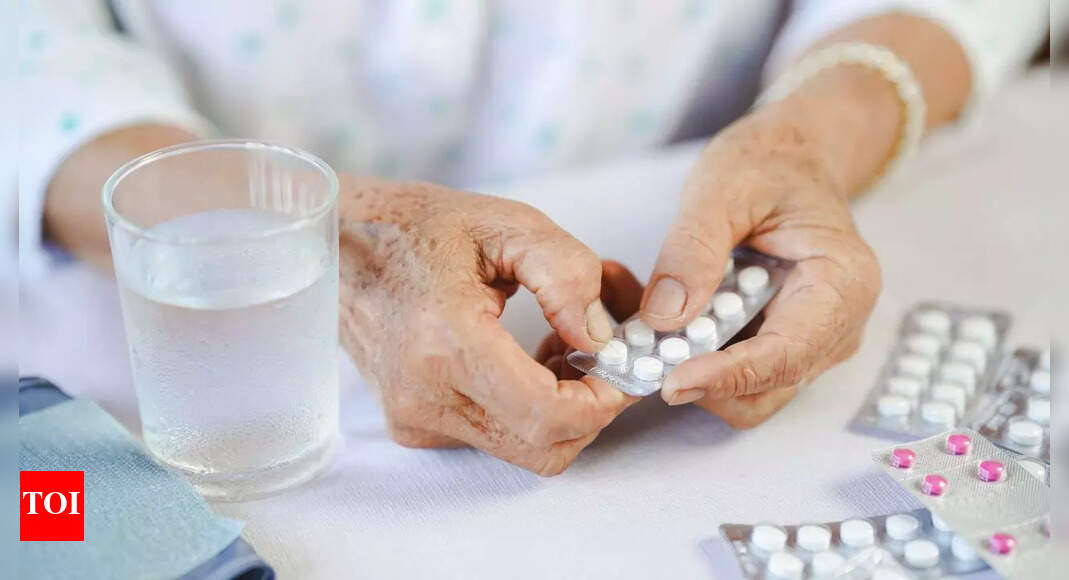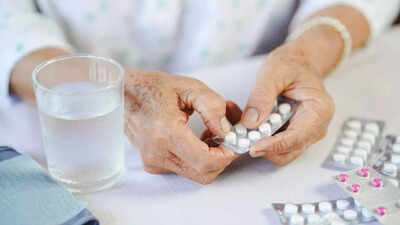
Taking medicines is a routine part of life for many people, whether for minor ailments like fever and cough or chronic conditions such as heart disease and diabetes. While some swallow pills with a glass of water, others take them dry, thinking it makes no difference. However, skipping water can affect how well a medicine works and may even irritate the digestive system. Water is essential for helping pills dissolve properly and be absorbed efficiently in the body. Without enough liquid, medications can get stuck in the throat or oesophagus, causing discomfort or damage. Understanding how much water to drink and the best way to take medicines can prevent complications, improve absorption, and support overall digestive health.
Importance of drinking water with medicines
Drinking water with medication is essential for several reasons. First, water ensures that pills reach the stomach safely without getting stuck in the throat. Second, it helps the medicine dissolve quickly, allowing the body to absorb it effectively. Some medications are designed to dissolve at a specific rate, and skipping water can interfere with this process, reducing their effectiveness. Certain pills, if taken without water, can irritate the oesophagus or stomach lining, increasing the risk of discomfort, heartburn, or ulcers. Therefore, taking medicines with an adequate amount of water is not just a suggestion, it is a necessary step for safe and effective treatment.
How much water should you drink with medicines
The amount of water needed depends on the size and type of the pill. Larger tablets or capsules require more water to ensure they pass smoothly into the stomach. As a general guideline, drinking at least one full glass of water, around 200–250 millilitres, with each pill is recommended. For medications that require extended release or are coated to dissolve slowly, sufficient water helps maintain their intended release pattern and effectiveness. Consulting a healthcare professional can provide guidance specific to certain medications, particularly for those with swallowing difficulties or other digestive issues. Proper hydration during medication intake also supports overall digestion and absorption.A study published NIH, explores the impact of water intake on pill swallowing. The study highlights that consuming less than 60 mL of water or swallowing medication with saliva alone can lead to prolonged retention of the pill in the esophagus, potentially causing irritation and discomfort. It emphasizes the importance of adequate water intake to facilitate smooth passage and proper dissolution of medications.
Risks of taking pills without water
Taking pills without water can lead to a range of complications. Pills that remain in the oesophagus can cause irritation or even small erosions in the lining. Some medications, especially those for pain relief or antibiotics, are acidic and can increase the risk of ulcers if they linger in the throat or stomach. Skipping water may also slow the pill’s dissolution, reducing its absorption and delaying the intended effect. Inadequate hydration while taking medication can further exacerbate digestive discomfort, including bloating, nausea, or indigestion. Drinking the right amount of water helps prevent these issues and ensures that the medication works as intended.
Best practices when taking medicines
To maximise the safety and effectiveness of medications, certain practices should be followed:
- Use warm water: Warm or room-temperature water helps pills dissolve more efficiently than cold water.
- Avoid lying down immediately: Wait at least 30 minutes after taking medicine before lying down to prevent reflux or irritation in the oesophagus.
- Mind meal timing: If a medicine is to be taken on an empty stomach, do so at least half an hour before eating. Conversely, if it is taken after food, wait at least half an hour after the meal for optimal absorption.
- Avoid milk and juice: Drinks like milk or fruit juices can interfere with the dissolution and absorption of certain medications. Stick to plain water unless otherwise advised.
Following these practices ensures that medications are absorbed properly, minimises side effects, and helps maintain digestive health.Drinking water with pills is not just a routine step but a critical part of safe medication use. It aids in dissolution, absorption, and reduces the risk of irritation or ulcers. While it may seem convenient to take tablets dry, doing so can compromise treatment effectiveness and harm the digestive tract. Drinking at least a full glass of water, being mindful of meal timing, and avoiding interfering drinks like milk or juice are simple yet effective measures. By incorporating these habits into daily routines, the body can absorb medications properly, reducing complications and supporting better overall health outcomes.Disclaimer: This article is for general informational purposes only and is not a substitute for professional medical advice, diagnosis, or treatment. Always seek the guidance of a qualified healthcare provider regarding any medical condition or lifestyle change.Also Read: 5 signs of breast cancer on the skin that you should never ignore








